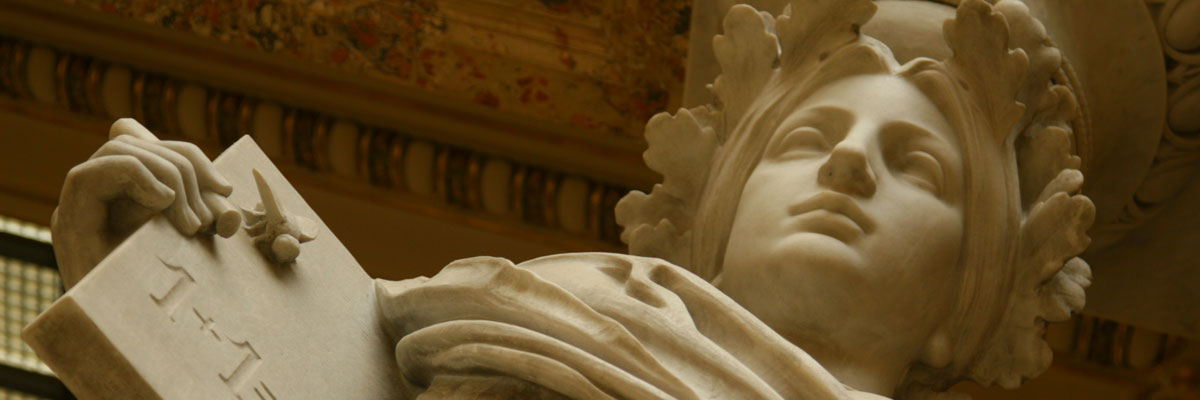
News archive
Search
Selected range: all newsThe Czech Academy of Sciences (CAS) expresses deep concern about substantial human rights violations in Iran, which directly affect students from high schools and universities as well as the entire academic community. The CAS stands entirely on the side of the protesters, strongly condemns the repressive actions of the Iranian security forces, and calls for an immediate end to the state-directed aggression against its own population. The CAS hereby joins the declaration of the international organisation IHRN. A similar statement was also issued by Charles University.
Why do swallows like to keep their nests in order? And why are some females “unfaithful” and others not? What makes male swallows attractive? Researchers at the Institute of Vertebrate Biology of the CAS have been monitoring the lives of swallows for a long time. They have a unique database at their disposal which includes feather specimens from more than 6,000 birds. The story was first published in the Czech issue of the A / Věda a výzkum CAS magazine.
In modern society, it is almost impossible to steer clear of ones and zeros. Since the turn of the millennium, the world has gradually become dominated by modern technology, and we have no choice but to keep up. In an interview for the e-magazine of the CAS, AB / Academic bulletin, Magdaléna Vecková, Director of the Library of the Czech Academy of Sciences, reveals the goings-on of the Library in the digital age.
New genome-editing techniques in plant breeding have the potential to feed the planet’s growing population. The need for innovation in food production is becoming increasingly more important in light of the ongoing war in Ukraine and climate change. However, the implementation of modern genome-editing techniques in practice is not yet permitted in EU countries, including the Czech Republic. Researchers across Europe want to change this. That’s why on 13–14 October, 2022, the Czech Academy of Sciences and EU-SAGE organised an international conference on genome editing for food safety and crop improvement in Prague within the context of the Czech EU Presidency.
The positive effects of breastfeeding and breast milk on the right growth, health, and development of babies are indisputable. What factors can affect the quality of this wholesome substance? And what is the optimal length of time to breastfeed? The answers are suggested by two new studies by Czech researchers from the Institute of Experimental Medicine of the CAS and the Institute of Physiology of the CAS, published in the journals Biomedical Journal of Scientific & Technical Research and Food Chemistry.
At the beginning of his scientific career, Prof. Patrik Španěl searched the depths of interstellar space for organic compounds. Later, he turned to terrestrial life. His method of mass spectrometry, a technique used to measure substances in gases with extreme precision, has been used for many years in various fields of human activity: improvements in the manufacture of chips, safety checks in the production of medication, ensuring the safety of transport, but also in detecting certain diseases from our breath. What principle does it work on? And does it have potential to serve as a diagnostic method in medicine? We visited the labs at the J. Heyrovský Institute of Physical Chemistry of the CAS to get some answers.
In August 2022, an amendment to the law on limiting the environmental impact of certain plastic products came into force. The amendment bans the use of single-use straws, cups, cutlery, cotton buds, and helium balloon holders. How do experts view the new restrictions, which are based on EU regulations? Is it a step in the right direction? We asked researchers Zdeněk Starý and Hynek Beneš from the Polymer Processing Department of the Institute of Macromolecular Chemistry of the CAS for their opinion on the issue.
Greenhouse gases in soil, algebra, fish ecology, and modern history. Just a brief selection of the research areas pursued by some of the eleven newly awarded researchers. They received their honorary medals of the Czech Academy of Sciences from its President Eva Zažímalová on 14 September 2022 at the Academy headquarters at Národní Street in Prague. The highest award that the Academy of Sciences bestows – the De scientia et humanitate optime meritis medal – also found its new laureate, microbiologist Miloslav Šimek.
Energy supply can be considered the Achilles heel of the modern world, and it is increasingly the center of attention for experts, politicians, and the general public alike. Today, producing energy is not so much the issue. What’s more pressing is how to store or transport energy efficiently, cheaply, and safely. In this respect, our prospects might be improved by a new type of aqueous battery on the basis of saline water, developed by researchers from the Institute of Physics of the CAS and the J. Heyrovský Institute of Physical Chemistry of the CAS.
Starting today, those who visit the main building of the CAS will be able to experience the adventure of discovering and encountering faraway places and cultures at the Czechoslovakia in the Orient: The Orient in Czechoslovakia 1918–1938 exhibition. On view are also artefacts brought from the Orient and objects that were intended for export to these countries from Czechoslovakia.
The Czech Academy of Sciences (the CAS)
The mission of the CAS
The primary mission of the CAS is to conduct research in a broad spectrum of natural, technical and social sciences as well as humanities. This research aims to advance progress of scientific knowledge at the international level, considering, however, the specific needs of the Czech society and the national culture.
President of the CAS
Prof. Eva Zažímalová has started her second term of office in May 2021. She is a respected scientist, and a Professor of Plant Anatomy and Physiology.
She is also a part of GCSA of the EU.









